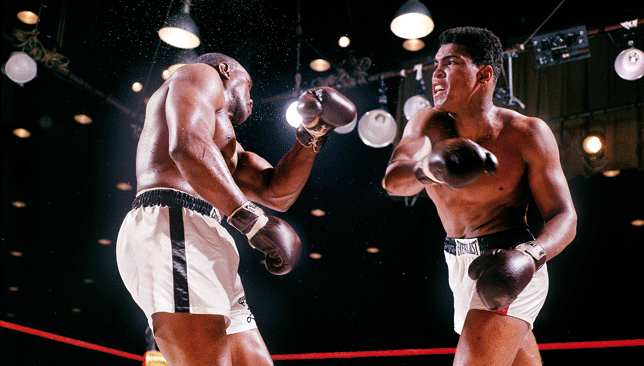-
EXPO ’67, Montreal: The beginning of a lifelong journey around the world.
“Jackson, get yourself to Rotterdam in 48 hours and there is a cargo ship that will take you to Canada,” said the heavily accented voice on the end of the phone. It was the summer of 1967 and I was bored out of my mind, half way through the summer semester at my boarding school in the English countryside. I had seen a program that spring on the flagship BBC news show Panorama about the opening of the World’s Fair in Montreal, Canada. It became my obsession – I wanted to see it. Actually I HAD to see it. But I had no money! I was 16 and it was…
-
1966 and all that
It was tucked away in the personal column of the prestigious Times newspaper published in London, England. A two line ad offering tickets to the World Cup Final at Wembley on July 30, 1966. This was Wednesday, July 27 – the morning after England had just beaten Portugal to reach the final. It would be against their bitterest rivals, West Germany, less than two decades after World War Two. I phoned the number given in the ad and was told yes the tickets were legitimate, but there would be a broker’s fee. The price of the ticket: ten shillings (just over one Canadian dollar)! The scalper mark up: five shillings…
-
The United States of Muhammad Ali
Muhammad Ali was arguably the greatest athlete of the twentieth century. Certainly the most charismatic. I had to see him fight. Live. Actually, I knew very little about boxing – until Ali, or Cassius Clay as he was then known, burst onto the scene winning a gold medal in Rome at the 1960 Olympic Games. As a teenager I kept up with his fights: usually by listening to a transistor radio, with poor reception, under my bed sheets in the middle of the night because of the time difference. Often in a dormitory of 20 or so other lads at boarding school. I had to keep the sound down so…
-
Back in the USSR – 1973
The newspaper advertisement was tiny, but the promise of adventure was huge. It was a three-line ad in the travel section of the Bristol Evening Post in the spring of 1973. Placed there by Intourist, the government-run travel agency in the USSR, it offered trips all around the Soviet Union. The itinerary included stops in Leningrad (as it was still known then), Moscow, Kiev and Tashkent along with visits to fabled cities like Samarkand on the silk road through Uzbekistan, Tajikistan and Kazakhstan. The cost – the equivalent of about $300 per person – was a bargain, heavily subsidized by the Soviet government and Aeroflot, the national airline. There was…
-
The Orient Express: November 1974
It IS murder on the Orient Express. That was one of my favourite lines from 50 years in journalism. I had just reached Istanbul after a three day journey on the Orient Express from Paris. And I had writer’s block. The journey was certainly not the romantic adventure of yesteryear. In fact it was hell. The cramped rail coaches were hot, steamy and uncomfortable. Then the line came to me and the story flowed from there. I was working on the Daily Mail in London’s Fleet Street and was assigned to travel on the famous train for a feature to coincide with the opening of the Agatha Christie film, Murder…
-
From Fleet Street to Bell Hop
One month I was interviewing presidents and prime ministers, and kings, queens and entertainment superstars, and the next I was carrying bags for the rich and famous at a ritzy hotel on the beach in California. It was all part of the plan. After more than two years working as a reporter on the Daily Mail in London’s Fleet Street I was 25 and knew it was now or never: if I really wanted to fulfill my lifetime ambition to travel around the world I had to leave then before settling down. A friend who ran a shipping company arranged for me to sail the Atlantic on one of his…
-
Honeymoon Part One: South America -1979
by Clive and Carol-Ann Jackson Guns drawn, four intimidating soldiers surrounded me as a seemingly straightforward dispute escalated out of control at a hotel in Asuncion, Paraguay. It was over my refusal to pay a hotel bill because I believed I was being ripped off. My wife stood helplessly nearby. Tension mounted. As the impasse escalated the only way I was able to resolve the deadlock was to demand a call to the British Consulate where a diplomat was able to negotiate a settlement between the hotel manager and me. We had arrived late the previous evening in Asuncion, the capital of a country known at that time as a…
-
Honeymoon Part Two: Africa – 1979
by Clive and Carol-Ann Jackson Departing Rio and saying goodbye to South America, we flew directly to South Africa, intending to fly straight up to East Africa. We didn’t want to enter South Africa to avoid getting the apartheid regime’s stamp in our passport – which we feared would prevent us getting into Kenya. But we had no choice, we had to enter immigration control and once we were in, decided to stay after being convinced to visit Kruger National Park, where we spent several days seeing wild animals for the first time. And while it was amazing to watch our first lions and elephants – we remember the African…
-
T Minus Four Minutes – 1990
By Clive and Carol-Ann Jackson Selfishly, I wanted a little something for Dad. It was the spring of 1990 and we had promised to take our son, Simon, to Disney World, Typhoon Lagoon and Epcot Centre in Florida as well as a driving trip through the Everglades. But I wanted to add a touch of drama to our plans and had just read about an upcoming space shuttle launch at nearby Cape Canaveral. Not just any launch, but the Discovery which was carrying the Hubble telescope into space on an historic mission. I phoned NASA to see when the launch was scheduled and how we could guarantee getting as close…
-
Maximizing Europe – 2006 and 2008
It was a conundrum. We wanted to travel by car through Eastern Europe, however most car rental companies refused to let us drive their vehicles into several countries, particularly Czechoslovakia and Slovakia, because of the high crime rate. At the time cars were frequent targets and, facing so many obstacles, we decided to go back to the drawing board. Travelling by train was an option but having grown up in Britain, using the excruciatingly unreliable British Rail system, I had an inbuilt doubts about any train in Europe running on time. Our travel agent suggested we go by bus. I was sceptical. But after a great deal of research, and…





